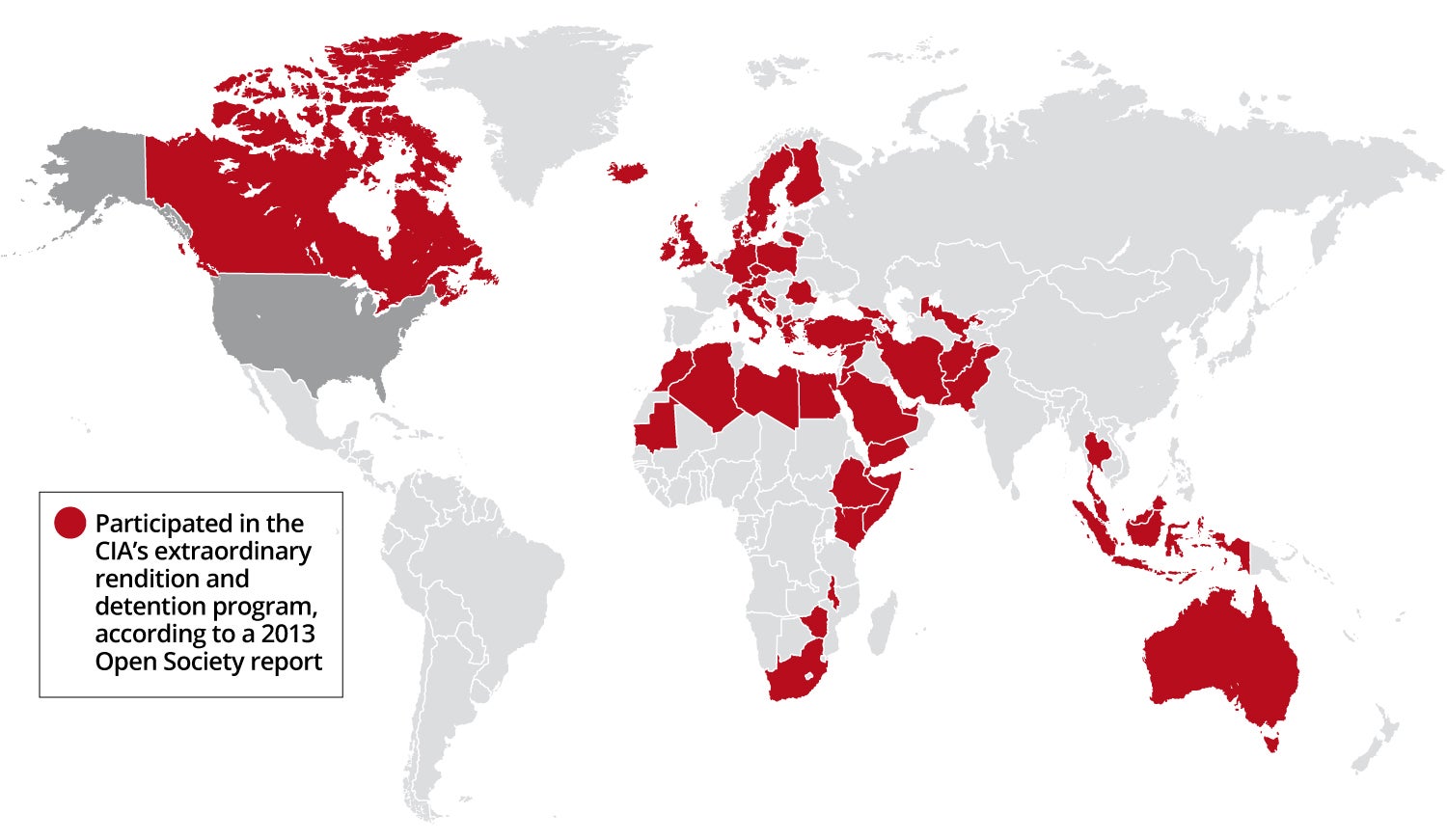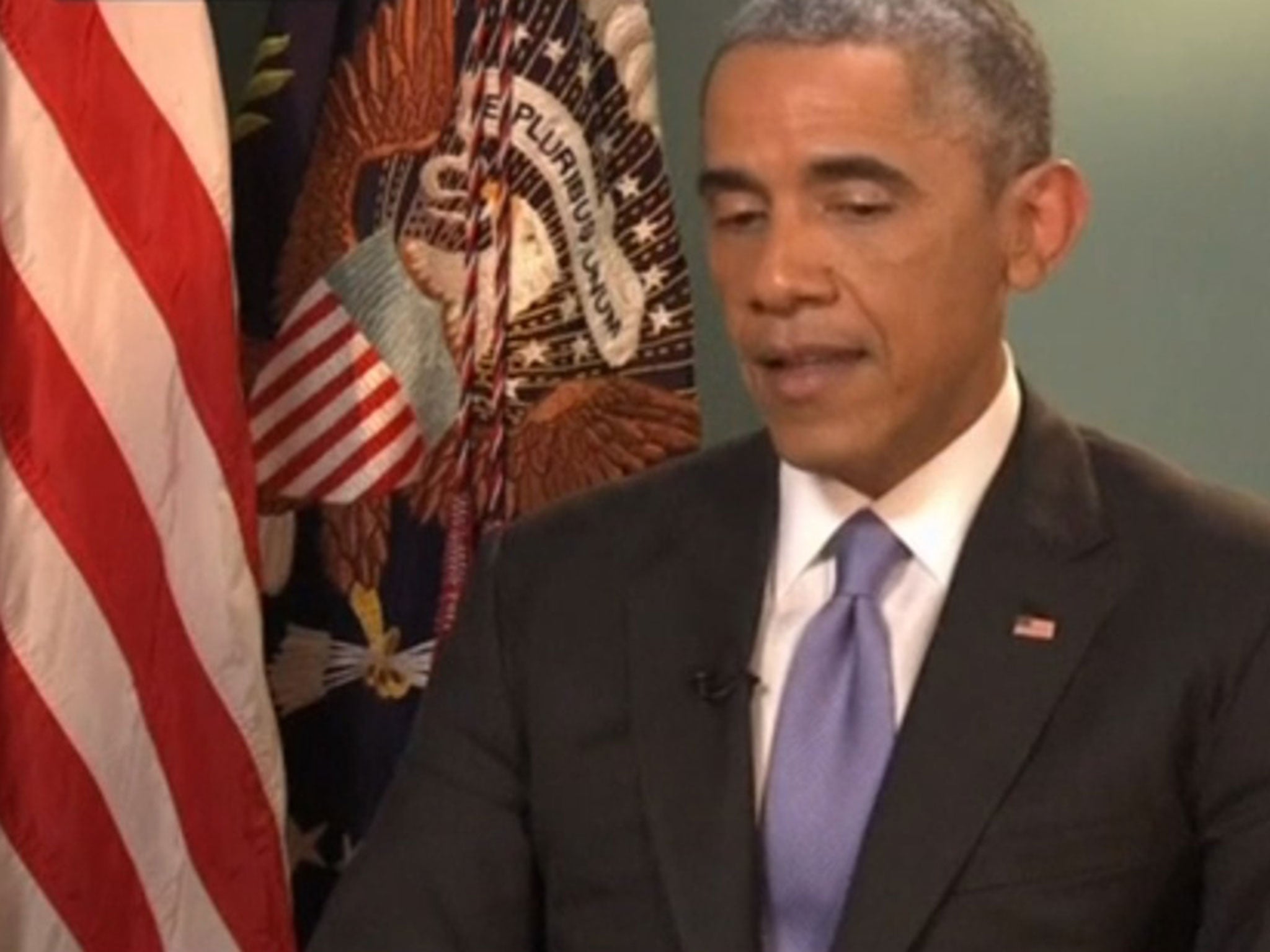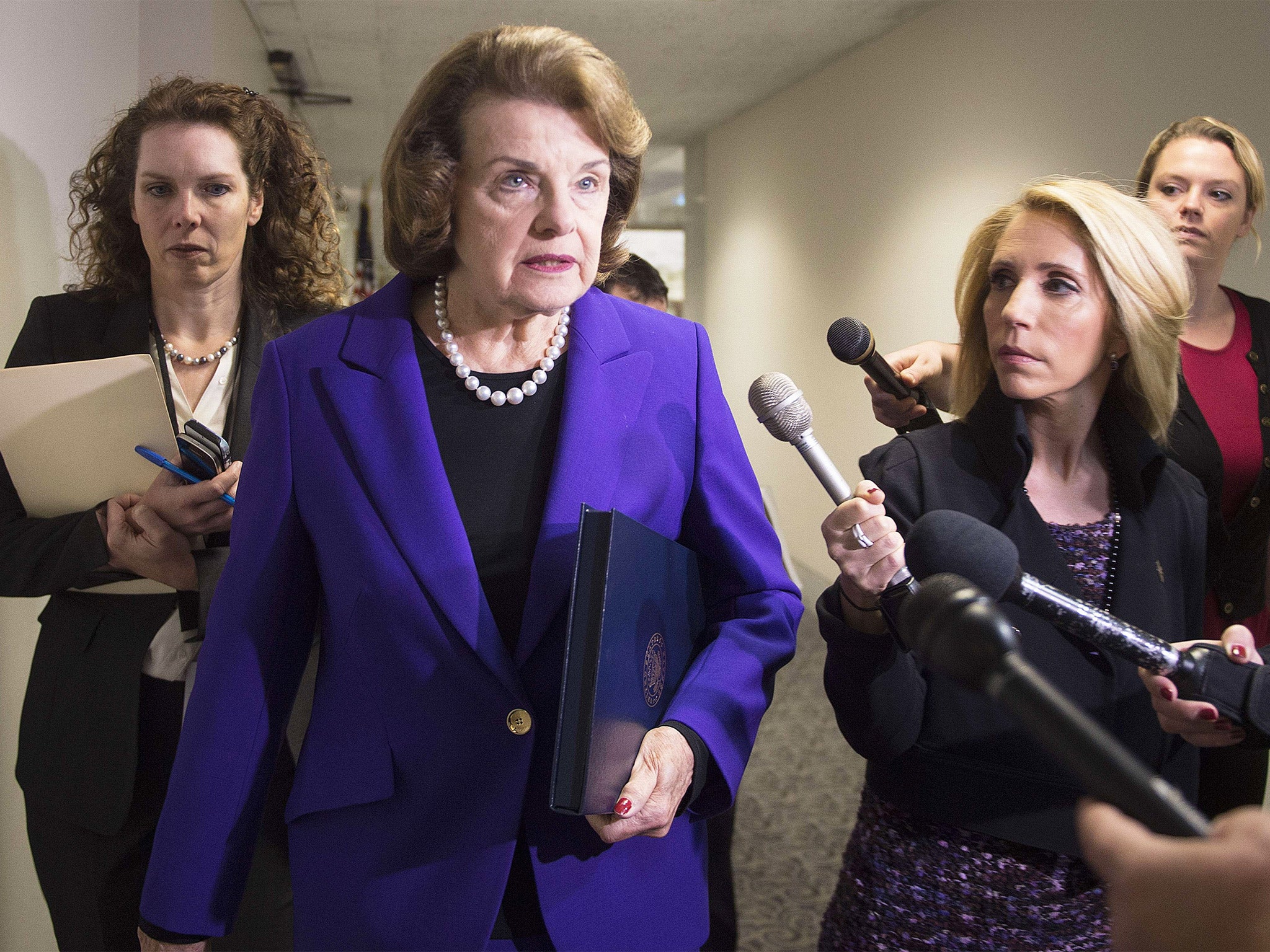CIA torture: Calls to prosecute US officials involved in 'brutal' interrogations of al-Qaeda suspects
Senate Intelligence Committee report said interrogation of detainees was 'far worse' than the CIA portrayed

Your support helps us to tell the story
From reproductive rights to climate change to Big Tech, The Independent is on the ground when the story is developing. Whether it's investigating the financials of Elon Musk's pro-Trump PAC or producing our latest documentary, 'The A Word', which shines a light on the American women fighting for reproductive rights, we know how important it is to parse out the facts from the messaging.
At such a critical moment in US history, we need reporters on the ground. Your donation allows us to keep sending journalists to speak to both sides of the story.
The Independent is trusted by Americans across the entire political spectrum. And unlike many other quality news outlets, we choose not to lock Americans out of our reporting and analysis with paywalls. We believe quality journalism should be available to everyone, paid for by those who can afford it.
Your support makes all the difference.The UN has called for the prosecution of those behind a 'criminal conspiracy' at the CIA that led to the 'brutal' torture of detainees.
Ben Emmerson, United Nations' special rapporteur on human rights and counter-terrorism, said those responsible for planning, sanctioning or carrying out crimes including waterboarding should not escape justice – even senior officials from George W Bush's administration.
"It is now time to take action," he said in a statement from Geneva. "The individuals responsible for the criminal conspiracy ... must be brought to justice, and must face criminal penalties commensurate with the gravity of their crimes.
"The fact that the policies revealed in this report were authorised at a high level within the US Government provides no excuse whatsoever. Indeed, it reinforces the need for criminal accountability."
Human Rights Watch executive director Kenneth Roth also said that the CIA's actions were criminal "and can never be justified".
“The Senate report summary should forever put to rest CIA denials that it engaged in torture, which is criminal and can never be justified,” he said.
“The report shows the repeated claims that harsh measures were needed to protect Americans are utter fiction.
"Unless this important truth-telling process leads to prosecution of officials, torture will remain a 'policy option' for future presidents."
Read more: Ex-CIA agents hit back at 'torture report'
Read more: CIA 'tortured suspects at secret overseas sites'
Read more: British plots the CIA used to justify torture
The Senate Intelligence Committee report, which was published yesterday, said that interrogation of al-Qaeda suspects in the wake of the 9/11 attacks was “far worse” than the CIA had portrayed to the US government.
Some of their methods included:
- Sleep deprivation for up to 180 hours, often standing or in painful positions
- Waterboarding methods that had deteriorated to “a series of near drownings”
- 'Rectal rehydration' and other painful procedures that were never approved
- Use of insects placed in a confinement box
- 'Attention grasp', where individual is grasped with both hands on each side of a collar opening
- 'Walling', where an individual is pushed against a wall quickly
- Saudi suspect Abu Zubaydah was kept confined in a coffin-sized (53cm x 76cm) box for hours
- Khalid Sheikh Mohammed was waterboarded 65 times over a period of two days
The report revealed that at least 26 of 119 known detainees were wrongfully held, and for months longer than they should have been.
The CIA was also accused of misleading the public and politicians – and justifying its use of so-called enhanced interrogation techniques with “inaccurate claims of their effectiveness”.
They were found to have used examples of thwarted UK plots, such as a plan by 9/11 mastermind Khalid Sheikh Mohammed to hijack planes and attack Heathrow airport and Canary Wharf, the capture of al Qaida UK operative Dhiren Barot and the arrest of attempted British shoe-bomber Saajid Badat, as proof that torture methods had "saved lives".

Prime Minister David Cameron said some activities after the 9/11 attacks had been “wrong” but added he was “confident the issue has been dealt with from a British perspective”.
“Let's be clear: torture is wrong; torture is always wrong," Mr Cameron said from Ankara.
“In Britain we have had the Gibson Inquiry and that inquiry has now produced a series of questions that the Intelligence and Security Committee will look at.
“But I am satisfied that our system is dealing with all these issues and I, as Prime Minister, have issued guidance to all of our agents and others working around the world about how they have to handle these issues in future.”
US president Barack Obama described some of the tactics mentioned in the report as “brutal” and “wrong”, adding that the interrogation programme had been put together “very fast without a lot of forethought to what the ramifications might be”.

"We've got better ways of doing things,” he said – and added that the report's publication was important to ensure such instances do not happen again.
In the report, which is a 480-page executive summary of the more than 6,000-page original, chair of the committee, Senator Dianne Feinstein, said that the major lesson was that regardless of the pressures and the need to act, the intelligence community's actions "must always reflect who we are as a nation, and adhere to our laws and standards".
She added: “It is precisely at these times of national crisis that our government must be guided by the lessons of our history and subject decisions to internal and external review.
“Instead, CIA personnel, aided by two outside contractors, decided to initiate a programme of indefinite secret detention and the use of brutal interrogation techniques in violation of US law, treaty obligations, and our values.”

But CIA director John Brennan insisted that the controversial methods did produce intelligence that helped thwart attack plans, capture terrorists and save lives.
He admitted that the agency had "made mistakes" and acknowledged that the detention and interrogation programmes “had shortcomings”, but said that the CIA disagreed with the committee on some key points.
“The intelligence gained from the programme was critical to our understanding of al-Qaeda and continues to inform our counter-terrorism efforts to this day,” he said.

The Justice Department decided on Tuesday not to re-open a criminal investigation into the CIA's treatment of detainees, stating that they had "reviewed the committee's full report and did not find any new information that they had not previously considered in reaching their determination''.
But British human rights groups have joined for a judge-led inquiry into the UK's involvement in the scandal.
Director of Liberty Shami Chakrabarti said: “The breadth and brutality of CIA torture is laid bare - can our own authorities keep averting their eyes?
Read more: When will Britain come clean about its role?
Read more: Profile: Former CIA Director George Tenet
Read more: 11 ways CIA was worse than it admitted
“Still no sign of a judge-led inquiry into UK involvement in this shameful scandal - instead the Government's new Bill furnishes the agencies with more powers to leave Britons vulnerable to torture abroad.”
Amnesty International Americas director Erika Guevara Rosas said: “This is a wake-up call to the USA, they must disclose the full truth about the human rights violations, hold perpetrators accountable and ensure justice for the victims. This is not a policy nicety, it is a requirement under international law.”
Join our commenting forum
Join thought-provoking conversations, follow other Independent readers and see their replies
0Comments